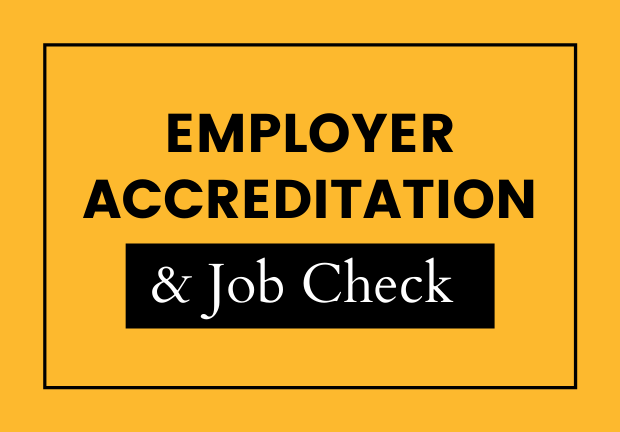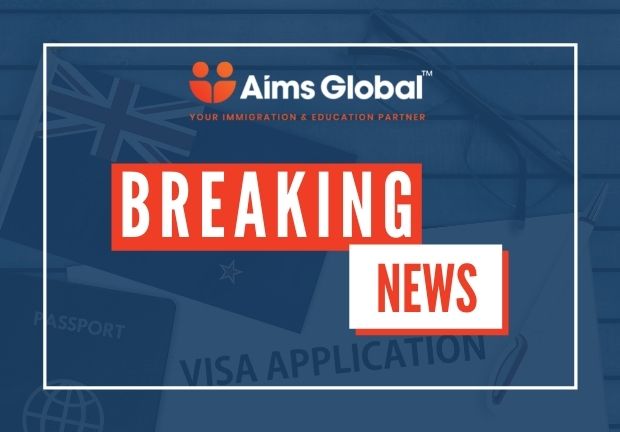Essential Skills Work Visa - What Is a "Labour Market Test?"
20 September 2021If you, as an employer in NZ, have supported migrants on work visas, chances are high you have encountered the phrase “labour market test” - also called ‘genuine attempts.’ This phrase refers to the process of advertising the role you will be using to support the work visa, on an INZ-approved platform. This must be done before the job can be offered to an onshore migrant worker and the Essential Skills Work Visa process can begin.
Given recent changes in the immigration landscape, the Essential Skills Work Visa (ESWV) is the visa that is able to best support migrant workers.
Therefore employers must understand what 'labour market test’ means from a policy standpoint. Put simply, to ‘test the labour market’ means: Before you recruit a migrant candidate for your business, you must first test the labour market to ensure that there is no NZ citizen or resident who can fill the role - and the advertising platform is just one aspect of this.
The Essential Skills Work Visa - Pre-Covid vs. Now
The ESWV presents a critical opportunity for migrant workers - especially now that borders are closed. However it has undergone two significant policy changes since March 2020 - both employers and individuals hoping to fill NZ roles must be aware of these:
- Offshore recruitment of migrant employees is suspended: Before NZ’s borders closed, employers could use the ESWV to hire migrant employees from either within or outside of NZ - if the latter, this visa would then allow these workers to enter the country. However, currently, the ESWV only allows for employers to recruit migrant workers already within NZ's borders.
- Labour market testing (advertising) is needed only if you are hiring a migrant employee to fill a new role: This policy was changed in July 2021, and allows employers whose workers are staying in their current role - and renewing their ESWV based on the same role - to skip the step of advertising the role publicly.
A Critical Opportunity for Migrant Workers
As of now, the ESWV remains the only work visa category that will support migrant workers from 1st November 2021 to mid 2022.
So although the concept of “labour market testing” may not seem complicated to understand, there are actually a number of misconceptions held by visa applicants and their employers - misconceptions which can have a drastic and unintended outcome on the applicant’s visa decision:
1. The Role Must Be Advertised in an Attractive Way
By “attractive,” INZ means a few different things: First, potential NZ job seekers must find this role attractive so they want to apply for it. Second, the advertising cannot be skewed to the applicant you have in mind; and third, the advertisement must accurately reflect the requirements of the role.
For example – if an employer is paying a higher than average market rate for the role, this attractive pay rate should be included in the advertisement to interest and incentivise potential NZ applicants. Or, in the opposite direction, including "seeking driver license" in the advert when that is not genuinely required for the role, can be seen as deterring New Zealanders from applying - and is not acceptable.
2. INZ Only Needs to Know Why NZ Residents and Citizens Were Not Suitable for the Role
In the eyes of INZ, it doesn’t matter if the Essential Skills Visa applicant is competing against other temporary visa holders or those offshore. What matters is whether any New Zealanders (citizens or residents) were disadvantaged in offering the role to the migrant worker. As a result, the employer does not need to provide an explanation on why non New Zealander workers were not suitable for the role.
3. Employers’ Requirements for the Role Can Technically Be Over and Above ANZSCO Requirements, but...
ANZSCO is a framework that defines the scope and structure of mostly all jobs in NZ. ANZSCO also controls what you can and cannot ask for within a specific role’s advertisement. Oftentimes, ANZSCO will not cover industry specific requirements - like an LCQ for a bar manager.
Technically, policy allows the employers to superimpose their own requirements in an advertisement - even if these are over and above ANZSCO’s requirements. But herein lies the catch: When reviewing the ESWV application, the immigration officer must be convinced that these requirements are necessary for the role, and not simply included to reduce the volume of applications. So this must be done sensibly - especially for roles paid below median wage.
For example – a Chef (as per ANZSCO) only requires 3 years work experience or a relevant NZ-recognised diploma. However, if an employer wishes to advertise a chef’s role that requires 3 years work experience and a relevant qualification, they can do so – but the Immigration officer may question the reason behind the excessive requirements.
Only if the employer can justify their requirement to INZ will the visa be issued. This creates the need for striking a fine balance between the role requirements an employer could demand versus the respective immigration policy.
4. An Applicant’s Special Skills Has No Bearing on ‘Genuine Attempts’
If the Essential Skills Work Visa applicant has worked in a similar company previously or is highly regarded by the employer – due to having specialist skills – this makes no difference where labour market testing is concerned.
For example – if an employer has already worked with a certain employee for years, and they want to promote them into a different role – the employer must still demonstrate genuine attempts to recruit an NZ citizen or resident. Only if those attempts are unsuccessful could the existing employee be moved forward.
This one aspect is often overlooked by employers - so we have seen this concern raised by INZ frequently in applications not done through our consultancy.
How to Conduct a Labour Market Test Has Not Changed
There have been a number of changes to the Essential Skills Work Visa in the latter half of 2021 - such as the maximum duration of certain visas and medical and police certificate requirements - but how INZ assesses an employer’s genuine attempts to hire New Zealanders under an Essential Skills Work Visa has not changed: INZ continues to assess these attempts comprehensively - meaning all factors listed above will come into the assessment process.
When it comes to an Essential Skills Work Visa, both the employer and the visa applicant will find themselves under scrutiny. An expertly trained eye can go a long way in ensuring a favourable outcome for the visa application.





